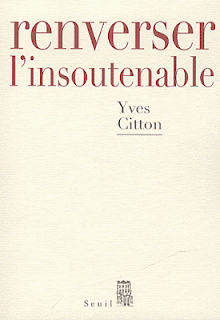Anyone who has ever taken or taught a philosophy class is familiar with the claim "[Blank] is subjective" in which the [Blank] in question could be anything from literary interpretations to ethical norms. This response effectively ends any and all cultural and philosophical discussion, which is why it is so aggravating. One response is to argue against this claim, to point out that not every interpretation of a poem, novel, or film, is authorized, that there are better or worse interpretations, with respect to cultural version. With respect to the ethical or political arguments it is tempting to point out that the very existence of ethics, of society, presupposes norms that are shared as well as debated and challenged.








